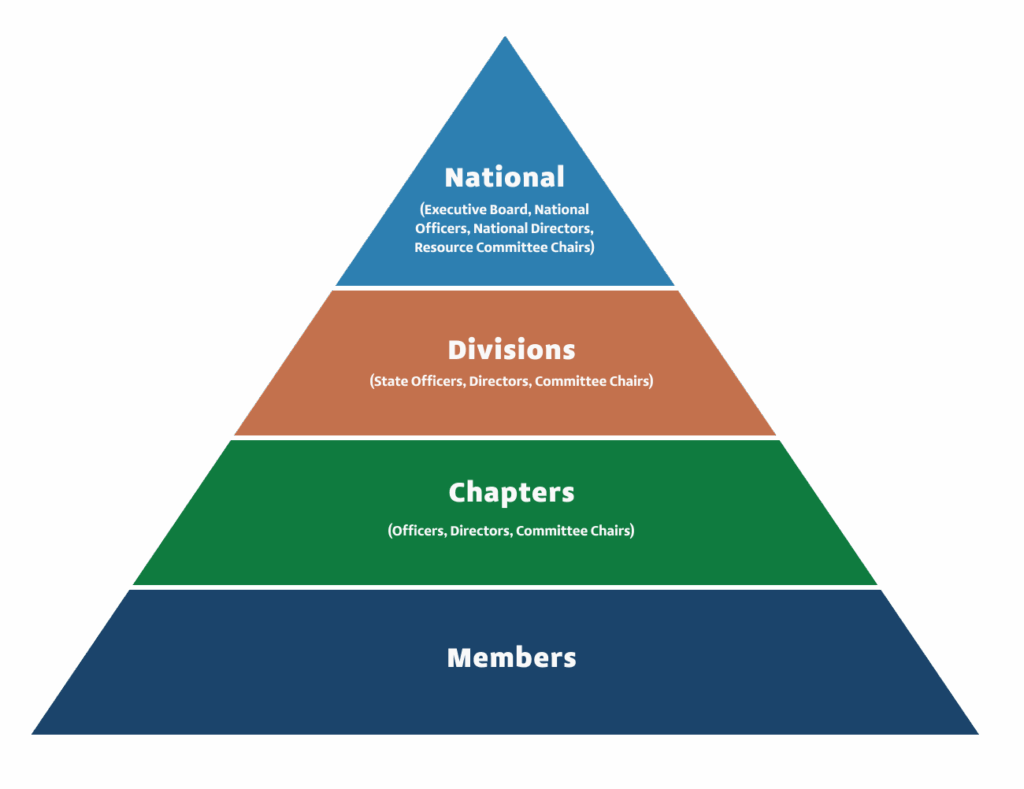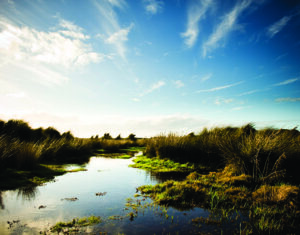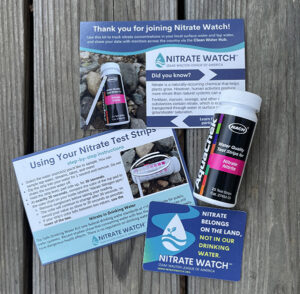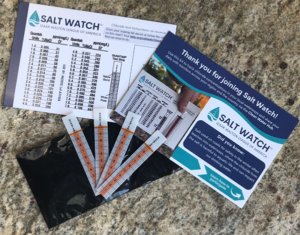The Izaak Walton League of America is a volunteer-driven, “bottom-up” organization that depends on its members for volunteer support, leadership, and their commitment to common-sense solutions to conservation issues.
Members
First and foremost, the Izaak Walton League is a membership organization of active and dedicated volunteer conservationists who work to protect and restore the country’s natural resources at the local, state, and national levels.
There are many ways to support the League. The easiest way is to become a member by joining a local chapter or supporting the national organization as a national member. Dues, most or all of which are tax-deductible, help support the work of the local chapter, state division, and the national organization.
By joining a chapter, members also gain access to many volunteer opportunities within their own communities. For example, our chapters restore streams and wetlands, build and install bird and bat houses, run litter pickup and recycling programs, organize and conduct hunter education classes and youth camps, and teach basic boating and fishing clinics.

Chapters
Since the League’s founding, chapters have worked at the local level to conserve our environment and promote enjoyment of the outdoors. Run by grassroots volunteers and ranging in size from as few as 10 to as many as several hundred members, our chapters provide terrific opportunities for friends, families, and neighbors to participate in a wide range of outdoor recreational activities and conservation projects. Many chapters own or lease grounds with facilities such as chapter houses, fishing ponds, shooting ranges, nature trails, or other outdoor attractions. While others meet in libraries, park lodges, or firehouses to socialize and discuss conservation issues.
Chapter officers, directors, and committee chairs work with other chapter volunteers to:
- Recruit new members;
- Oversee and manage the chapter and its assets;
- Promote responsible use of natural resources;
- Implement conservation projects and outdoor activities in their community; and
- Represent the chapter’s interests at the state and national levels.
Divisions
The League’s activities are further guided by the work of our 15 state divisions. Divisions develop state programs consistent with the objectives of the national organization, assist in creating new chapters, and play a crucial role in helping existing chapters and the national organization. Divisions provide a forum for individual chapters within a state to develop unified positions. Working closely with the national organization, they provide information and invaluable technical support to their chapters on everything from member recruitment to conservation and outdoor recreation projects to financial management and public relations.
Currently the 15 Divisions include:
- Colorado
- Florida
- Illinois
- Indiana
- Iowa
- Maryland
- Minnesota
- Nebraska
- New York
- Ohio
- Pennsylvania
- South Dakota
- Virginia
- West Virginia
- Wisconsin
As state-level League volunteers, these state officers, directors, and committee chairs:
- Oversee and manage the division’s assets;
- Promote responsible use of the state’s natural resources;
- Provide technical and administrative support to the division’s chapters;
- Recognize chapters’ local conservation projects, outdoor activities, and other accomplishments;
- Facilitate communication among the state’s chapters, divisions, and the national organization;
- Represent the state’s interests at the national level; and
- Recommend the formation and dissolution of division’s chapters.
National
The national organization is led by an Executive Board consisting of no more than 17 members, which includes nine members elected by the National Directors; three at-large members elected by the Executive Board; the four National Officers; and the one latest immediate past national president of the League. They are responsible for establishing the means to raise funds for the operation of the League (for example, establishing and collecting various types of membership dues), developing and approving the League’s investment policy, guiding staff to carry out the organization’s mission, and administering the conservation policy of the League as established by the delegates at national convention, or by the National Directors.
The National Officers include a president, vice president, secretary, and treasure. In holding these positions, officers accept certain responsibilities set forth in the League’s Bylaws. The specific duties of the president, vice-president, secretary, and treasurer are as follows:
- The president with preside at meetings of the Board of Directors and during parts of the national convention.
- While the vice-president may serve as president in the event of absence or inability of the president; and perform such duties as assigned by the Executive Board, or by the president, such as working on membership issues and national awards promotions.
- The secretary will keep an accurate record in permanent form of all business transacted at the annual national convention, and Board of Directors and Executive Board meetings.
- And the treasurer will perform duties related to the finances of the League as specified by the Executive Board, and serve on the audit committee.
At the national level, the League’s work is guided by its National Directors. This Board of Directors consists of four national officers; presidents of each state divisions; additional national directors who are chapter members elected by each state division; six directors-at-large; and any living past national presidents.
Resources Committee Chairs provide leadership to specific resource committees of volunteers who provide expertise in various natural resource problems and conservation issues. The League conservation policies are established by members who submit draft resolutions to these committees for consideration and adoption during the annual national convention. Committees¾such as agricultural affairs; energy and environment; environmental education; fish and wildlife; outdoor ethics; public lands; sustainable resources; and water resources ¾ accept, review, clarify, and either deny or forward proposals to League leaders and chapter delegates for a vote to approve. If approved, they become official League policy, guiding the work of volunteers and staff at all levels of the League.

 Your kit will include a bottle containing 25 nitrate test strips which you can use to test your water source(s) throughout the year. You’ll also receive postcards explaining how to use your nitrate test strips and how to share your Nitrate Watch results on the Clean Water Hub.
Your kit will include a bottle containing 25 nitrate test strips which you can use to test your water source(s) throughout the year. You’ll also receive postcards explaining how to use your nitrate test strips and how to share your Nitrate Watch results on the Clean Water Hub. Your kit will include four test strips so you can test your waterway throughout the season. You’ll also receive a chart to help you interpret your results and a postcard with instructions for completing a Salt Watch test and reporting your findings.
Your kit will include four test strips so you can test your waterway throughout the season. You’ll also receive a chart to help you interpret your results and a postcard with instructions for completing a Salt Watch test and reporting your findings.